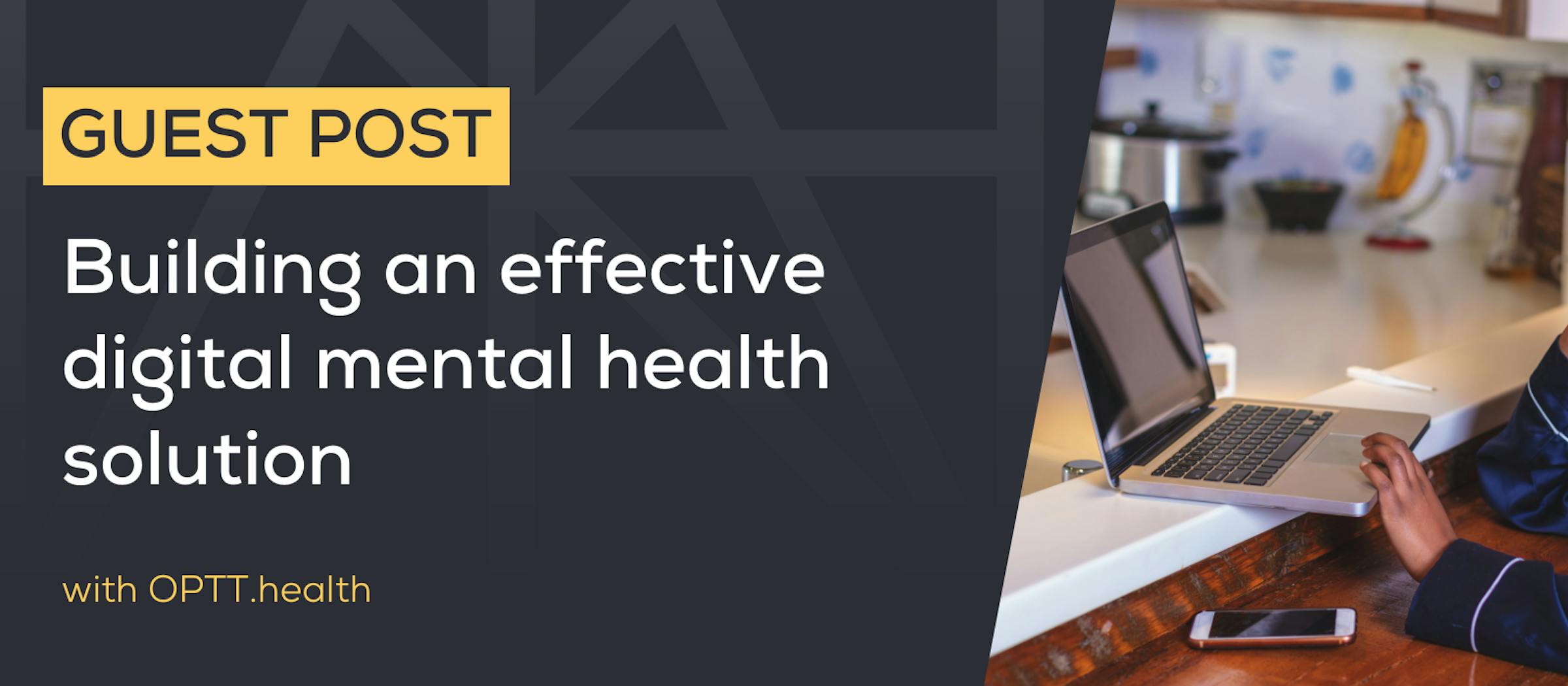Guest Post: How an AI-enriched mental health platform optimizes clinic workflows to provide qualified help for a greater number of patients
The CEO of OPTT shares his insights on a digital first approach to mental health
At the onset of the COVID-19 pandemic, it became clear to mental health clinics that in-person sessions were no longer a viable solution. However, with the increased demand for behavioral health services and shortage of behavioral health workforce, even synchronous video sessions lacked practicality as a sustainable, long-term solution.
With that, providers began exploring digital solutions that they could easily leverage to keep up with the growing demand for therapy sessions.
Digital solutions make mental health more accessible and scalable. Some driving factors for the “digital first” approach include: reduced stigma of seeking help for mental wellness due to the private access setting, increased care capacity and reduced wait times. In addition, the asynchronous nature of a digital first behavioral health plan can help patients to conveniently navigate through the content at their own pace and get more effective results out of the process.
Features of an effective digital mental health solution
An effective behavioral health platform should have components that address both patient expectations and care provider usability. Important features include the ability to:
- Leverage a white-label platform allowing for convenient and custom adaptation by providers, allowing for the intimate and personal relationship and the trust between care provider and patients to remain intact — an integral part of any effective care process.
- Use a series of simple automated APIs which can get incorporated into an existing platform in a manner of weeks, to avoid technology fatigue and adoption hurdles.
- Include evidence-based material and clinically validated long-term programs, which could be readily integrated in the clinicians’ workflow.
- Streamline the process enough for behavioral healthcare to become part of the primary care practitioners’ duties for a more universal coverage.
- Incorporate new technologies and data analytics capabilities to provide data-driven recommendations to improve treatment plan outcomes.
How digital-first solutions can increase quality of care
Using artificial intelligence (AI) and machine learning capabilities, a patient’s progress and their engagement level can be closely tracked. This data, such as frequency of platform use, in combination with clinical outcomes like changes in clinical questionnaire scores, can be used to train predictive algorithms that help catch patients before they fall through the cracks. Monitoring and proactively identifying patients with low engagement could help prevent negative outcomes like dropping out of therapy. Here are some more examples on how AI and machine learning can increase the quality of care:
- Most mental health diseases demonstrate a range of physical and behavioral symptoms, such as changes in sleep patterns or appetite, that can be measured using smart devices used prevalently by patients. This is commonly termed behavioral phenotyping. Objective evaluation of symptoms is the first step to any effective and evidence-based care plan.
- Leveraging the data to develop big repositories of symptoms, interventions and outcomes to facilitate personalized decision making based on unique symptoms, physiology and genetics of each patient (aka “N of 1”).
- Tracking of objective measures continuously and remotely to predict the next episode of mental health catastrophes before they happen.
Such a data-driven approach, facilitated through the use of digital mental health platforms, is essential for transforming behavioral healthcare from its current state of inefficiency to a more evidence-based field of medicine and public health.
About OPTT
Mohsen Omrani is the CEO of OPTT, a digital health startup and MATTER member.
OPTT is a digital mental health platform, targeted at health care organizations, empowering them with validated digital care plans and proprietary A.I. algorithms to assist clinicians with their decision making and to increase the care capacity by 4X.
In response to mental health challenges triggered by the COVID-19 pandemic, OPTT and its clinical partner, Queen’s University Online Psychotherapy Lab, developed a new care plan to validate the efficacy of addressing mental health challenges using an online platform. They clinically validated this new CBT based digital program at Queen’s University and published its protocol and early results in JMIR Research Protocols. Additionally, commercial partners who offered this program to employee groups have achieved significant results. The program reduced both anxiety and depression symptoms of employees by 40% in just the first five weeks of this nine-week program.



